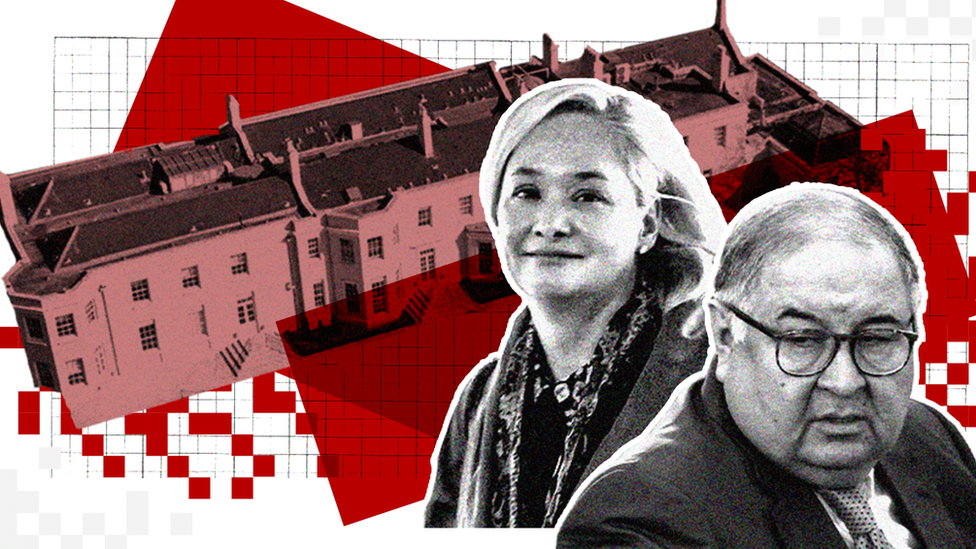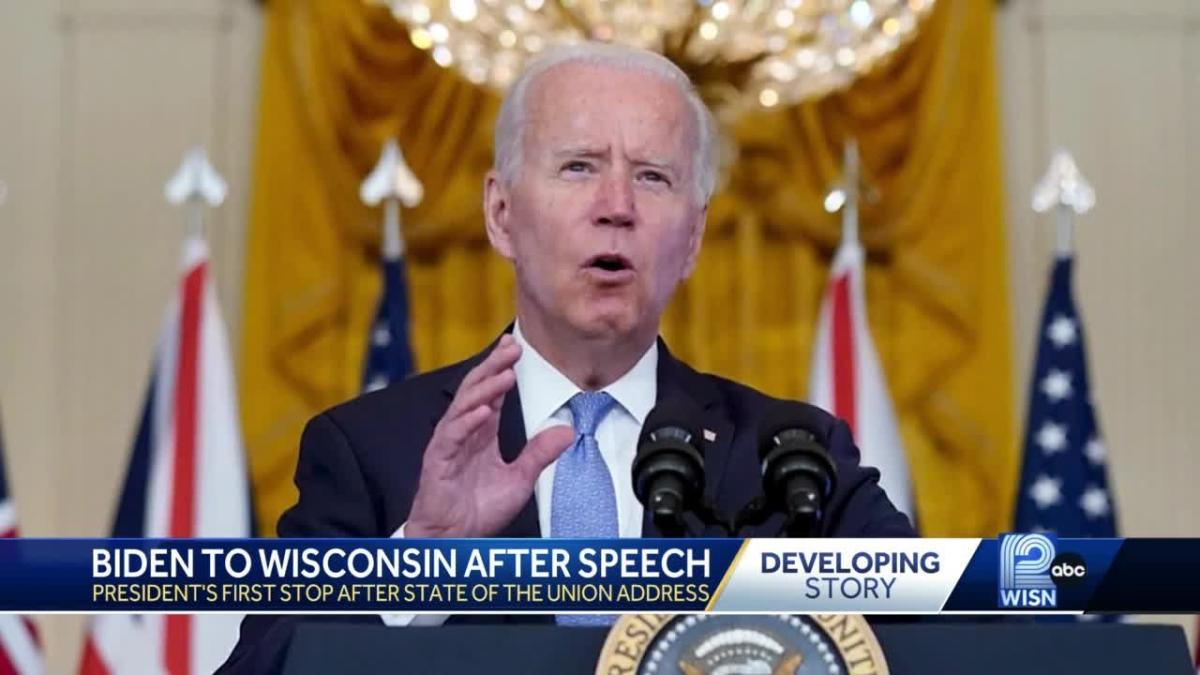Unveiling the UK’s Elite: A Look at the Register of Overseas Entities and Three Luxury Properties
Stylized graphic featuring Beechwood House, Lubov Chernukhin and Alisher Usmanov
Owners of around 50,000 UK properties held by overseas companies remain hidden from the public despite new transparency laws.
Launched in August 2022, the Register of Overseas Entities was intended to reveal who ultimately owns British property.
But an analysis by BBC News and Transparency International found that nearly half of the companies that are required to say who is behind them didn’t.
Labor MP Margaret Hodge said the legislation was not “fit for purpose”.
A UK government spokesman said the register was an “invaluable source of information for law enforcement, tax and revenue authorities”.
Short representative gray line
The UK government has long pledged to crack down on overseas “corrupt elites”, including “Russian oligarchs and kleptocrats” who use British property to launder illicit wealth.
Ministers insisted they would crack down on foreign criminals using British property to launder money by ensuring they “cannot hide behind secret chains of letterbox companies”.
As a result, under a law passed in February 2022 in response to Russia’s invasion of Ukraine, ministers said anonymous foreign companies wishing to buy British land or property would be required to disclose full details of who ultimately owned them . Overseas organizations that already owned land in the UK were given six months to do the same.
Now that the six-month grace period has expired, for the first time, all the people, regardless of reputation, behind companies that own thousands of UK properties should have been exposed.
The BBC and Transparency International have matched thousands of filings from the new register with land registry entries. This analysis suggests that around 18,000 offshore companies – who collectively own more than 50,000 properties in England and Wales – either ignored the law altogether or submitted information in such a way that it remains impossible for the public to ascertain who the individuals ultimately own and benefit from it.
“While the registry is beginning to serve its intended purpose, our analysis shows that there are far too many companies that could try to circumvent the rules, unaware they exist, or ignore them altogether,” says Duncan Hames , Director of Policy at Transparency International UK.
To understand how the law works and how it doesn’t, it helps to look at three very expensive properties. The first is a pair of luxury apartments. Another is a sprawling £48m estate in north London, the third a £10m country home.
All have been linked in some way to people associated with Vladimir Putin’s regime.
Take a look at the two luxury apartments in central London, for example, worth an estimated £11million.
Stylized graphic showing luxury apartments in London
Their possession by former Russian Deputy Prime Minister Igor Shuvalov was first reported by the anti-corruption foundation set up by jailed Russian opposition leader Alexei Navalny.
According to the UK government, which sanctioned him in March 2022, Mr Shuvalov – who heads the board of a Russian bank – is “a core part of Putin’s inner circle”.
And now the registry has confirmed that he and his wife are the ultimate owners of the apartments, which are held by a Russian company, Sova Real Estate LLC.
Mr Shuvalov’s spokesman told the BBC last year that these issues “have been the subject of competent government scrutiny” and that “no complaints have ever been made”.
But while there are thousands of examples of the register working, ultimate ownership of thousands of properties remains hidden from the public.
Take Beechwood House, a north London estate bought in 2008 for £48million with a valuation of around £85million.
Stylized graphic showing Beechwood House
Following Russia’s invasion of Ukraine 12 months ago, the British government cracked down on wealthy businessmen close to Putin’s regime. Assets were frozen, preventing rich Russians from withdrawing their money from Britain.
But it was not always clear what fortune belonged to these oligarchs.
For example, Beechwood House was listed by the government as owned by oligarch and ex-Arsenal shareholder Alisher Usmanov when it announced sanctions against him.
A spokesman for the oligarch has now told the BBC that he transferred Beechwood House as well as other assets to family trusts “well before sanctions were imposed” and that Mr Usmanov, although a beneficiary for a time, retired “on an irrevocable basis”.
The spokesman added: “Neither Mr. Usmanov nor members of his family are the beneficial owners of these companies.”
One might think that the register should show who actually owns Beechwood House. But it doesn’t.
Hanley Limited, an Isle of Man company, is given as the owner. And the beneficial owner of Hanley Limited is the Swiss company Pomerol Capital SA, which controls it under a trust structure.
However, nothing about the individuals who own Pomerol Capital is listed in the public register.
This is because trust-owned entities – unlike other incorporations – are exempt from publishing their beneficial ownership information on the register.
So from the file it is impossible to identify the individuals who will own, control or benefit from Beechwood House – a property which the government itself said belonged to Mr Usmanov, which would have made it subject to an asset freeze.
Whilst the names of persons associated with trusts are not included on the register, companies are required to submit their details privately to the Companies House business register.
Flow chart showing that when a UK property is owned by a foreign company which is owned by another foreign company through a trust structure it is exempt from disclosure of the individual owner.
And many other owners have found an even easier way to keep their name off the register – by simply not complying with the new legislation.
Overseas companies with property in the UK – bought in England and Wales since January 1999 and in Scotland since December 2014 – had until January 31 to reveal the identities of their owners.
But around half of the offshore companies with property in England and Wales – around 15,000 – did not have a matching entry in the property register before last week’s government deadline.
These include the company, which owns a £90million home in west London linked to former Chelsea owner Roman Abramovich. The Cyprus-based company does not seem to have submitted its details to the land register yet.
Mr. Abramovich could not be reached for comment.
In addition to the companies that have yet to be submitted, the BBC analysis found that one in four offshore companies that submitted their data is actually owned by other foreign companies and not individuals.
Infographic showing that of the 92,000 properties in England and Wales owned by 32,000 foreign companies, 21,000 companies have entered the register; 1,900 report no beneficial owner; 5,700 list a foreign company; 4,000 foreign trust names; and 1,800 list a foreign entity that is not a trust, which may make their filing noncompliant.
Some of these are owned by trusts, such as Beechwood House.
But this is not the only way companies avoid public disclosure of the people who are actually behind them.
And there is a third category – companies that have filed their data with the land registry but have not complied with the regulations.
The BBC’s research has identified more than 1,800 companies whose filings appear not to be.
Among them is Uart International, a Panamanian company that acquired a country mansion in 2008, according to land records.
Stylized graphic depicting the mansion in the countryside
As part of the Pandora Papers leak of nearly 12 million files, the property belonged to an offshore corporate network controlled by Vladimir Chernukhin and his wife Lubov.
Mr Chernukhin is a former Russian deputy finance minister and businessman who had financial ties to pro-Kremlin oligarchs. He moved to the UK after being sacked by Putin in 2004 and insists he is not a supporter of the Russian president.
His wife Lubov, whom he married in London in 2007, is a major Conservative Party donor, which has given the Tories more than £2.3million since 2012.
Companies House records show that Uart International lists another foreign company as its “person of significant control”. This means that despite the change in the law, the people who ultimately own the property remain hidden from the public register.
Under the new rules, no other anonymous offshore company should be named as the owner of a UK-owned company.
There is no evidence in the filings that the company owner is a trustee, which would exempt the company from having its person of significant control disclosed in the register – suggesting that this could be a breach of the rules.
Lawyers for the couple told the BBC that “Mr and Mrs Chernukhin do not and never have supported President Putin’s policies, nor are allies of President Putin” and that they “are not aware that Uart has ever filed company documents that conflict with the applicable rules and.” regulations in all relevant jurisdictions”.
Flowchart showing the difference between a compliant and non-compliant submission. The latter is British property owned by a foreign company owned by another foreign company, with no record of the owner’s name.
While the new rules include severe penalties for companies and individuals who don’t comply, experts have questioned whether this will work.
“Although the legislation contains some severe penalties for non-compliance, the Government has failed to give Companies House the teeth and resources to apply this in practice,” says Helena Wood, UK crime crime program director at the Royal United Services Institute think tank.
Margaret Hodge MP, leader of the cross-party parliamentary group on anti-corruption and responsible taxation, said the new register was becoming “a joke”.
She added: “We need to know who owns these fantastically expensive properties, why they bought them and how they got the money for it.”
A government spokesman said Companies House is now “reviewing and preparing cases for enforcement action” and further legislation would allow it to impose fines and take legal action against companies that break the law.
Additional reporting by Liana Bravo, graphics by Jana Tauschinski
Don’t miss interesting posts on Famousbio










